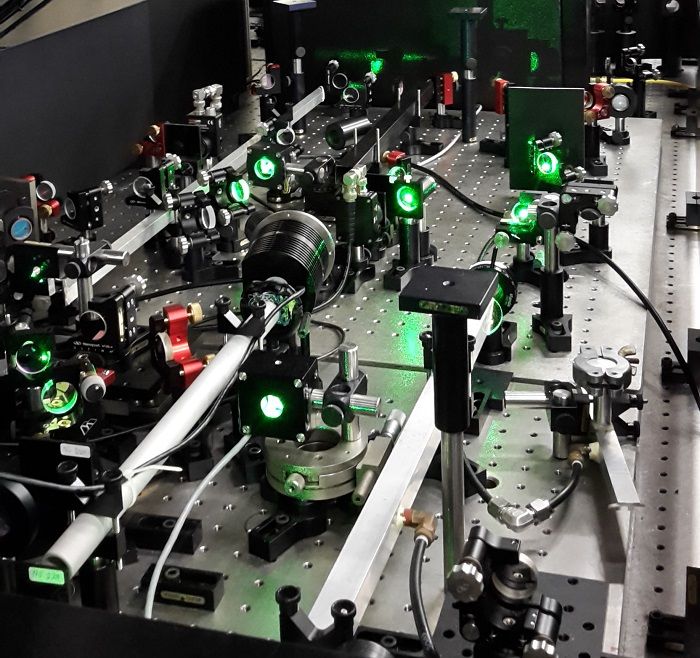WASHINGTON — Researchers have developed a new laser that makes it possible to measure electron transition energies in small atoms and molecules with unprecedented precision. The instrument will help scientists test one of the bedrock theories of modern physics to new limits, and may help resolve an unexplained discrepancy in measurements of the size of the proton.
The team will present their work during the Frontiers in Optics (FiO) / Laser Science (LS) conference in Rochester, New York, USA on 17 −21 October 2016.
“Our target is the best tested theory there is: quantum electrodynamics,” said Kjeld Eikema, a physicist at Vrije University, The Netherlands, who led the team that built the laser. Quantum electrodynamics, or QED, was developed in the 1940s to make sense of small unexplained deviations in the measured structure of atomic hydrogen. The theory describes how light and matter interact, including the effect of ghostly ‘virtual particles.’ Its predictions have been rigorously tested and are remarkably accurate, but like extremely dedicated quality control officers, physicists keep ordering new tests, hoping to find new insights lurking in the experimentally hard-to-reach regions where the theory may yet break down.
